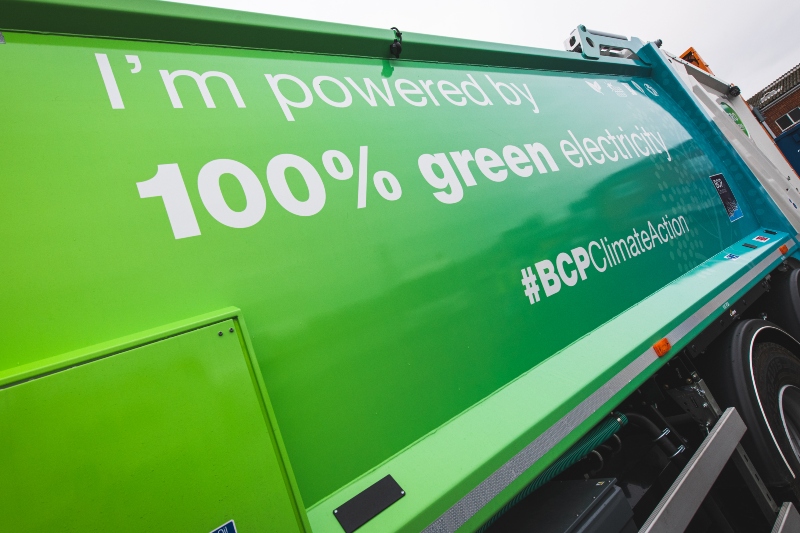BCP Council is undertaking a £20m fleet replacement scheme. LAPV spoke to Cllr Andy Hadley, Portfolio Holder for Climate Response, Environment and Energy, to find out more.


In February, Bournemouth, Christchurch and Poole (BCP) Council’s cabinet signed off on phase two of the local authority’s multi-million-pound fleet replacement scheme. This was, as Cllr Andy Hadley, Portfolio Holder for Climate Response, Environment and Energy remarked at the time, a ‘significant step’ towards the council’s ambition to become a carbon neutral local authority by 2030.
The £20m scheme will see the local authority’s existing end-of-life vehicles replaced with electric or lower carbon alternatives. The council plans for 280 new vehicles to be acquired over the next three years, more than 100 of which will be electric. Such a dramatic overhaul of the council’s 600-vehicle-strong fleet should result in reduced carbon emissions, lower annual running costs for small- and medium-sized vehicles, and improved air quality for residents.
Phase one of the scheme began in 2021 with the purchase of seven electric refuse collection vehicles and 67 electric vans. According to the council’s estimates, this has seen annual carbon emissions cut by 250 tonnes – the same amount produced by 1.78 million kilometres of driving. Phase two progresses towards the council’s aim to be carbon neutral by 2030. The council says that small- and medium-sized electric vehicles (EVs) purchased in phase two are forecast to deliver whole-life savings of more than £420,000 in annual running costs.
Bournemouth, Christchurch and Poole councils merged to form BCP Council in 2019 and, in doing so, they became the tenth largest local authority in the UK, with over 400,000 residents to serve. This merger brought together councils with – in the words of a report by the auditor KPMG – ‘three different cultures, system architectures and ways of working.’ Naturally, this affected fleet services. As Cllr Hadley told LAPV, ‘[the councils] had different approaches to how they managed replacement of their fleet.’
After the merger, it made sense for the new authority to rethink its approach to its fleet, particularly in light of the net zero requirement. It was against this background that the replacement scheme was introduced. It has not been easy though. There have been ‘some challenges’, Cllr Hadley says, although under Fleet Manager Mark Parsons there has been some real progress too.
Like a lot of local authorities, BCP Council’s efforts at fleet decarbonisation have been stymied by questions of infrastructure – or the lack thereof. The ‘biggest constraint’ is electrical capacity and physical space, he tells LAPV. The authority inherited three depots from its constituent councils, but only two can support the move over to EVs. Further down the line, perhaps in five years, Cllr Hadley hopes they will be able to work from a centralised depot, a move he says would ‘create efficiencies.’
Commenting after the cabinet signed off on phase two, Cllr Hadley said: ‘This marks a significant step towards our duty of becoming a carbon neutral local authority by 2030 and ensures better air quality for all residents. Phase Two of this scheme will allow the council to build on its successful first phase and will place BCP amongst leading councils in transitioning towards operating a green fleet. This new investment ensures we can continue to deliver on our promise of making Bournemouth, Christchurch and Poole a better place for everyone.’
It will certainly be interesting to watch how the replacement scheme progresses, particularly against the backdrop of local government reorganisation. No doubt BCP Council’s ambitious efforts will be instructive for councils up and down the country as they merge into unitary authorities. Watch this space.
Sign up here to receive our free weekly news bulletin and quarterly e-book.